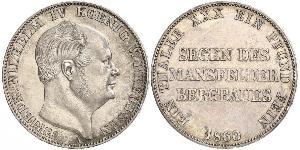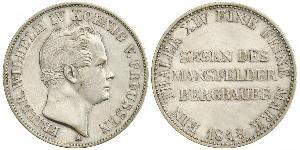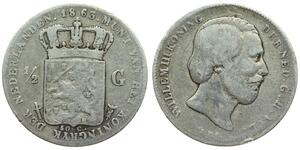Frederick William IV of Prussia
Frederick William IV (1795–1861) was the King of Prussia from 1840 until his death in 1861. Here are some key points about him:
Early Life: Frederick William IV was born on October 15, 1795, in Berlin, Prussia, the eldest son of King Frederick William III and Queen Louise. He received a rigorous education and developed a strong interest in art, architecture, and philosophy.
Ascension to the Throne: Frederick William IV became King of Prussia in 1840 upon the death of his father. He was a deeply religious and conservative monarch who sought to uphold traditional values and institutions while also embracing cultural and intellectual pursuits.
Domestic Policies: Frederick William IV's reign was marked by attempts to implement conservative reforms while maintaining absolute monarchy. He granted a liberal constitution in 1848 in response to widespread unrest and revolution across Europe but later revoked it amid conservative backlash.
Cultural Patronage: Despite his conservative political stance, Frederick William IV was a patron of the arts and sciences. He supported the construction of numerous cultural and architectural projects, including the completion of the Cologne Cathedral and the construction of the Neue Wache in Berlin.
Failed German Unification: Frederick William IV's reign coincided with the period of the German revolutions of 1848–1849, during which there were widespread calls for German unification and liberal reforms. While initially supportive of the idea of a united Germany, he ultimately rejected the Frankfurt Parliament's proposed constitution, fearing it would undermine Prussian sovereignty.
Later Years and Legacy: Frederick William IV's later years were marred by declining health and mental instability. He suffered a stroke in 1857 that left him partially paralyzed and unable to govern effectively. His younger brother, William I, served as regent until Frederick William IV's death in 1861. Despite his mixed legacy, Frederick William IV is remembered for his cultural contributions and his role in shaping Prussian identity during a period of significant political and social change.
You may be interested in following coins
2025-05-29
- New coin is added to 50 Cent / 1/2 Gulden Kingdom of the Netherlands (1815 - ) Si ...
50 Cent / 1/2 Gulden Kingdom of the Netherlands (1815 - ) Si ...
group has 13 coins / 13 prices
⇑
Netherlands - Gulden 1863 - Silver
2025-05-29
- Historical Coin Prices




-300-150-IHcKbzbizFcAAAFRpvtauxkd.jpg)



